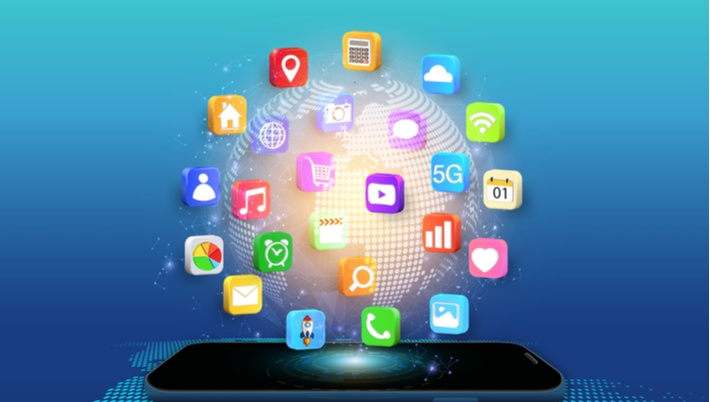The Grande Vegas Casino promo codes casino has been following a recent Oakland District Court injunction that would have obligated Apple to give developers the chance to offer out-of-system links to Apple-run app users. That order has been put on hold for now but the company won’t be able to give its lawyers a vacation any time soon – the Apple-Epic trial that stirred up the hornet’s nest has led to multiple countries looking into examinations of whether Apple breaks their anti-trust laws.
The Grande Vegas online casino summarizes recent developments in the case.
Epic-Apple Round 2
Round 1 of the Epic Games – Apple court case, in which Epic sued Apple for monopolizing the app development market by requiring that purchases of all apps featured in the Apple App Store be effected through payment through Apple (with Apple taking a huge cut) ended in August 2021 with a decision that no anti-trust laws had been broken. At the same time, District Yvonne Gonzalez Rogers of Oakland, California ruled that Apple must include links within the Apple-run apps that allow users to pay for digital content outside of the Apple Store. Apple filed for a stay of Rogers’ order and the stay was granted, setting the stage for years of future court battles.
In 2020 Epic filed suit against Apple, claiming that Apple’s prohibition of the distribution of iOS apps for digital content outside the App Store, which means that developers must use the Apple in-app payment system for in-app and app purchases exclusively, constitutes a breach of federal anti-trust laws.
Epic used its flagship game Fortnite where it featured a direct link to Epic for app and in-app purchases, violating its agreement with Apple that such purchases would take place only through the Apple Store. Apple removed Fortnite from the App Store and Epic filed its antitrust suit which prompted Apple to countersue for breach of contract.
Judge Yvonne Gonzalez Rogers of the Oakland District Court ruled on the case on September 10. She found that Apple had not broken any anti-trust laws but she did impose an injunction that would have obligated Apple to allow developers to include links within Apple-run apps that would enable users to pay for digital content outside of the Apple system.
Apple objected strenuously. In their appeal to the 9th U.S. Circuit Court of Appeals in which they requested a stay of Rogers’ order, they claimed that such a move would “harm customers, developers and Apple itself.” One day before the injunction was to have activated, the Northern District of California, Oakland issued a stay of injunction, saying that “Apple has demonstrated, at minimum, that its appeal raises serious questions on the merits of the district court's determination that Epic Games, Inc.”
Success Leads to Heightened Scrutiny of Practices
The Epic lawsuit may not have given Epic what it wanted but it did succeed in causing major headaches for Apple as governments around the world place the country under heightened scrutiny.
Poland’s competitive watchdog, the Office of Competition and Consumer Protection (UOKiK), is looking into how Apple’s policy changes to its mobile platform impact the way that third-party apps track users. The agency is investigating how changes to the App Tracking Transparency (ATT) feature impact how users are tracked for ad targeting.
The UOKiK believes that, while the practice reduces the ability of third-party apps to send personalized ads, users’ private information may still be collected and, in the end, may be promoting the Apple Search ads Apple advertising service – a violation of the principles of competition.
United States
The United States Justice Department has opened an investigation into whether Apple enforces rules for app developers unevenly, specifically as it pertains to Roblox. In its Epic Games vs. Apple court case, Epic argued that Roblox was not under the same restrictions as were other app developers because it offers users access to games without paying fees.
Roblox has changed its website to read that it offers "experiences" instead of "games" and the Justice Department continues to follow up, asking for clarification as to what constitutes a “game” and what constitutes an “experience.”
The DoJ is also looking into Apple Arcade to see if the Arcade game store is making it more difficult for developers to compete with Apple products and whether Apple is restricting location access for third-party apps even while its own services are apps get full access to location data.
India
India’s Competition Commission (CCI) has launched an investigation into Apple business practices as it examines whether Apple abuses its dominant position in the apps market through its insistence that developers use its proprietary in-app purchase system.
Holland
Holland’s antitrust authority has ordered Apple Inc. to allow dating apps to bypass the Apple payment system and use other payment systems. Failure to do so will result in a $56 million fine. The antitrust authority determined that Apple imposes “unreasonable conditions” by not allowing a free choice for app payments. The change must be in place by Jan 15 2022.
Japan
Japan is conducting its own antitrust investigation into the market dominance of Android and iOS. Once again, it’s the App Store’s in-app purchase system that is under fire, this time by the Japan Fair Trade Commission (JFTC). This marks the 4th time that an anti-trust investigation includes Apple. Investigators are looking at how and why Android and iOS leverage their dominance in the smartphone operating system market to limit options and eliminate competition.
Most observers believe that Apple and probably Android will be forced to make changes in their systems for app and in-app purchases in the coming years.

